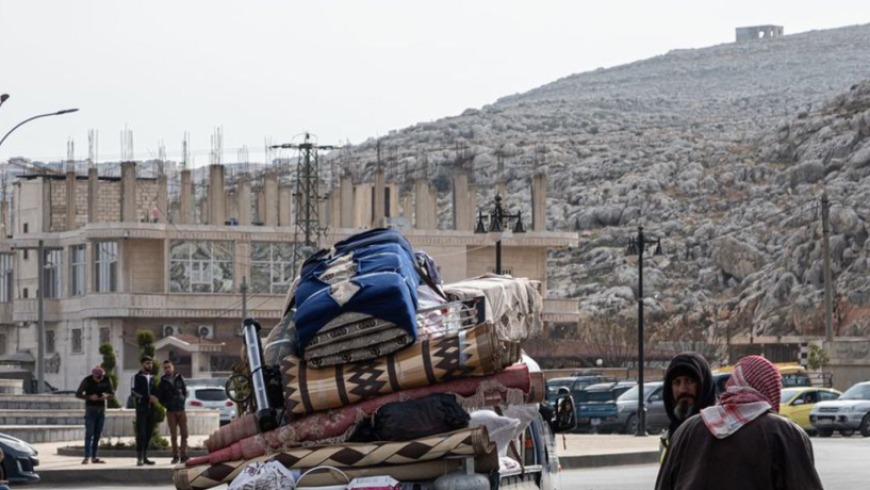On December 8, 2024, Syria entered a pivotal chapter in its modern history: the fall of the decades-long Assad regime and the dawn of a new era. Alongside this seismic political shift, thousands of Syrians began returning from exile, drawn by a deep-rooted longing for a homeland that existed more vividly in memory than in reality.
Their return, however, proved far more complex than a physical relocation. It was, in many ways, a psychological ritual—what Sigmund Freud described as a “return to the sites of childhood,” where identity and emotion are entangled with early memories. Yet the homeland they found bore little resemblance to the one they had carried with them in exile. What greeted them was not the Syria of their dreams, but the aftermath of war: ruined streets, ghostly silence, and a fragmented social fabric.
Nostalgia as a Double-Edged Sword
Nostalgia is not merely a personal feeling—it is a psychological mechanism that attempts to make sense of the present by reconstructing the past. The French philosopher Paul Ricœur once wrote that “memory is the bridge between personal identity and collective history.” In exile, Syrians often built an idealized, emotionally charged version of their country—one that helped them cope with displacement. But upon returning, that emotional construct collapsed.
What many faced was a country altered beyond recognition. The homes they remembered were now piles of rubble; familiar streets had vanished under layers of destruction. Even the people—neighbors, friends, relatives—had changed, transformed by absence, trauma, or time. This dissonance between the imagined homeland and the real one created what psychologists describe as “post-nostalgia stress”—a form of emotional disillusionment rooted not in the trauma of war itself, but in the chasm between memory and reality.
As the Swiss psychoanalyst Carl Jung put it, “The trauma lies not in the event, but in the gap between what is expected and what is experienced.”
One returnee expressed the experience poignantly:
“I thought seeing the door of our house would bring me back to who I was. But when I stood before the ruins, I realized the memory that sustained me in exile had died there, buried under the rubble. I returned to see the Syria I loved—only to feel like a stranger on an empty stage.”
Homecoming as a New Form of Exile
For many, returning to Syria was not a homecoming, but the beginning of a new estrangement. The journey back became a confrontation with the transience of time and place. Existence itself, the experience suggests, is shaped less by permanence and more by movement, disruption, and uncertainty. Thus, the homeland was no longer a familiar place—but a site of existential contradiction.
In this light, the collapse of nostalgia becomes more than a psychological setback; it can serve as a moment of existential clarity. The disintegration of the emotional bond between memory and place challenges returnees to rebuild their sense of belonging—not as a return to the past, but as a conscious engagement with the present.
Beyond Sentiment: Reimagining the Homeland
From the perspective of existential psychology, emotions are not fleeting reactions—they are foundational moments of self-realization. Philosopher Jean-Paul Sartre once noted that “man is not defined by his past, but by what he makes of it.” By that logic, the pain of disillusionment upon return can become a generative moment—an opportunity to redefine one’s connection to the homeland.
Rather than mourning the loss of a remembered Syria, returnees may find strength in embracing the task of reconstructing it—not as a fixed memory, but as a living, evolving idea. Nostalgia, then, is not merely fidelity to the past; it can become a call to build a future that honors the memory without being trapped by it.
A Homeland in Motion
The return to Syria after its liberation has revealed just how fragile the relationship is between memory and geography. It has also demonstrated the emotional power of nostalgia—not as a weakness, but as a survival mechanism. Homeland, in this context, is not just a place. It is a shifting emotion, an identity in flux, and a story being rewritten in real time.
Ultimately, as the idealized image of Syria fades under the weight of reality, a new form of patriotism may emerge—one that is less about the restoration of what was, and more about the creation of what could be.
The journey home, then, is not the end of exile. It is the beginning of a new reckoning—with memory, with loss, and with the enduring task of rebuilding meaning from the ruins.
This article was translated and edited by The Syrian Observer. The Syrian Observer has not verified the content of this story. Responsibility for the information and views set out in this article lies entirely with the author.


